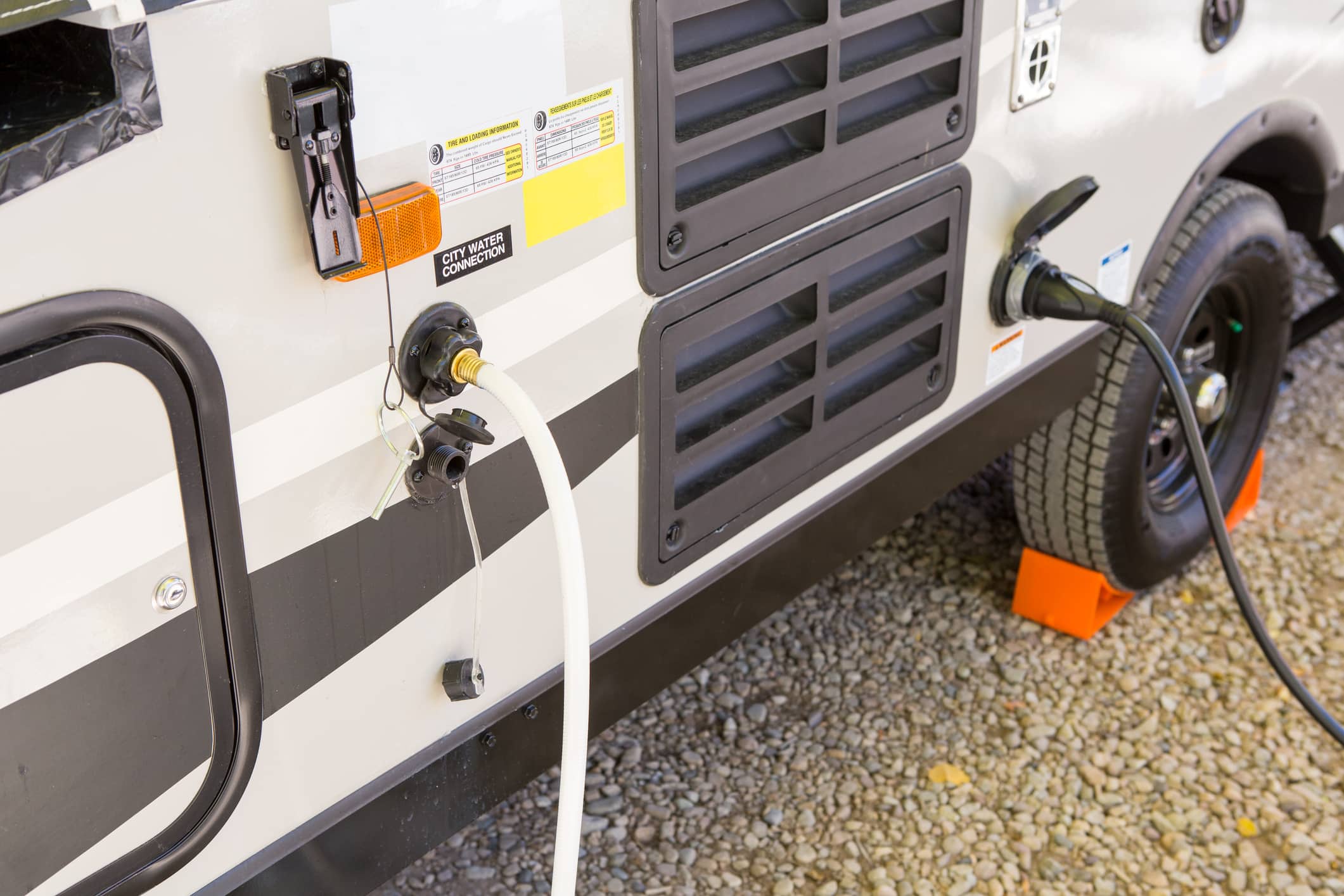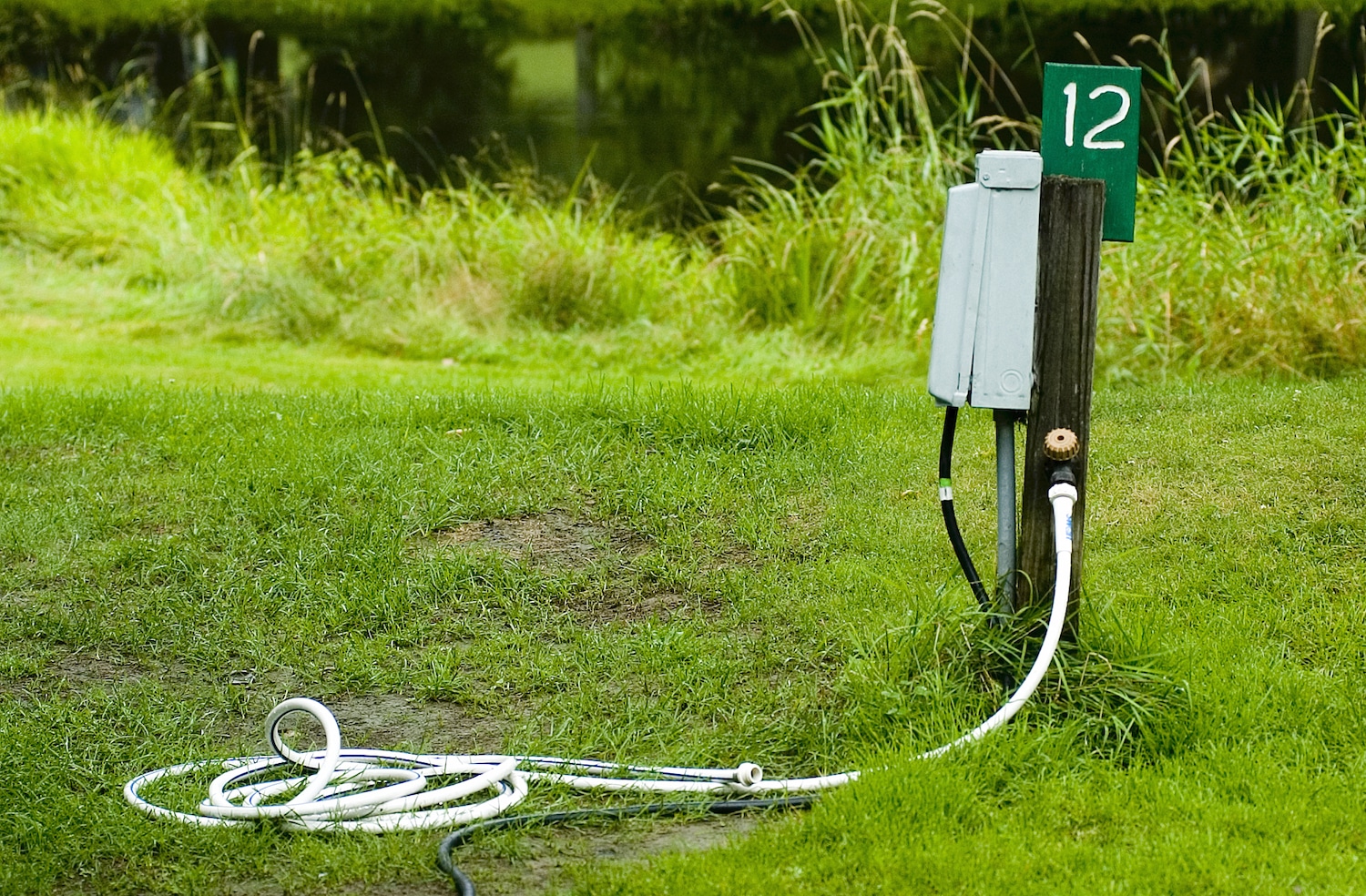Products You May Like
Water is an important part of doing pretty much anything, RVing included. You need water for your RV and that often means connecting up to a city water connection. Recently, we posted a podcast episode that was about the importance of filtering water from these connections, but you should also be worried about the water pressure.
Having too much water pressure is not a good thing. Luckily there’s something you can do: add a water pressure regulator. Let’s take a closer look at why and what a water pressure regulator can do for you.
Reasons to Use a Water Pressure Regulator
The water coming out of a city water connection at a campground isn’t likely to be monitored. This means the water pressure at different campgrounds can vary. It can be very high pressure water coming out or very low pressure. Either one can lead to issues.
If the water pressure is too low, you’ll not have good flow of water into your RV, which isn’t the end of the world but rather a minor annoyance. However, if the water pressure is too high, it can actually cause damage to your RV. This could lead to leaks and water damage, something you really need to avoid at all costs.
How a Water Pressure Regulator Works
A water pressure regulator is quite simply a valve that reduces the water pressure coming from your water source. If the water coming from your water source comes to your RV with too much pressure it will damage your RV, as we’ve mentioned above. The water pressure regulator stops that from happening by lowering the water pressure before it reaches your hose.
You attach the water pressure regulator to the water spigot where you’ll recieve your water. This ensures that the high water pressure stops right at the spigot and doesn’t enter your water hose or your RV’s plumbing.
What Is the Right Water Pressure for an RV?

The correct water pressure for an RV can vary depending on the model and the condition of your RV’s plumbing system. Modern RVs can handle up to 100 psi of water pressure. However, most RV experts recommend you never let the water pressure exceed 60 psi. Somewhere around 40 to 50 psi is ideal for many RVs.
Of course, you should consult your RV’s owner’s manual before just blindly following some general guidelines. Some RVs will perform best with specific water pressure. Your RV’s owner’s manual may also recommend a specific type of water pressure regulator. Always go with what your owner’s manual recommends.
Types of Water Pressure Regulators
There are a couple of different kinds of RV water pressure regulators out there for you to choose from. As I said above, you should go with the one that works best for your RV, that should be discussed in your owner’s manual. If not, I suggest you get an adjustable water pressure regulator with a gauge.
Generally, there are adjustable water pressure regulators and non-adjustable ones. The non adjustable ones come in either low flow or high flow. Choose the option that is right for your RV and you should be good to go. I prefer the adjustable water pressure regulator with a gauge. These regulators allow you to really dial in the appropriate water pressure and the gauge lets you see what the psi is. It’s just generally a better option. However, these do tend to be a little more expensive.
If you need a water pressure regulator, check out all of the water pressure regulators available at Camping World.
Do you use a water pressure regulator? If so, what do you use? Leave a comment below!

